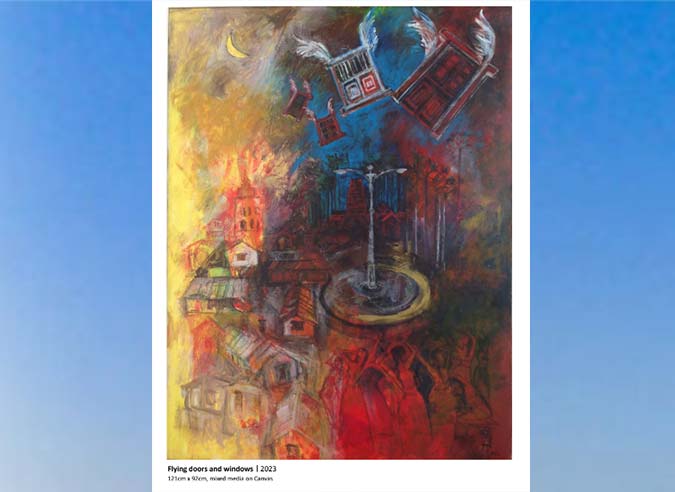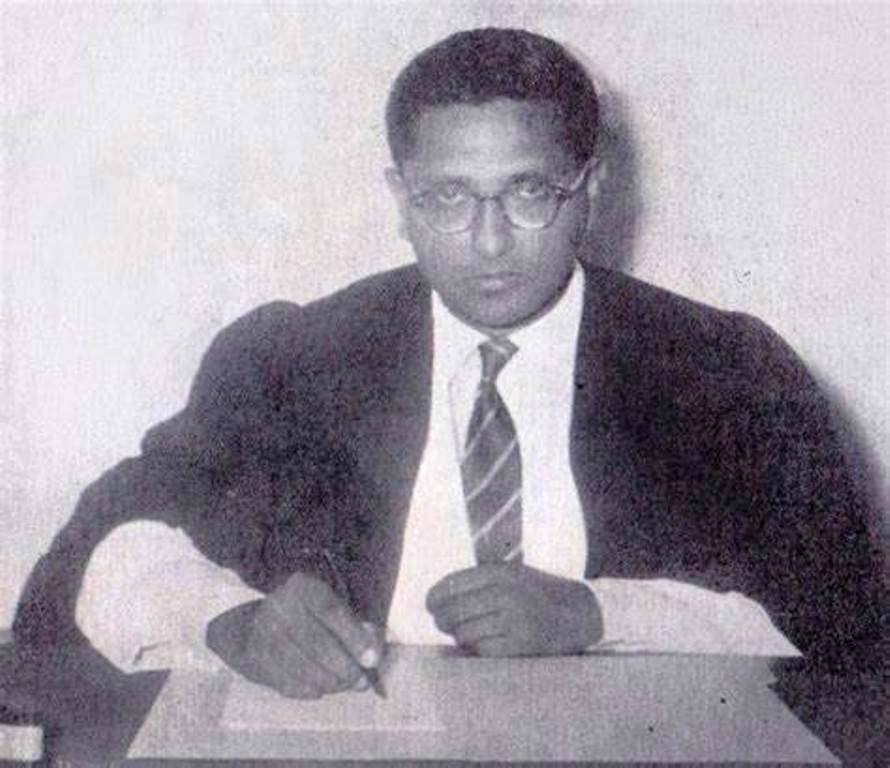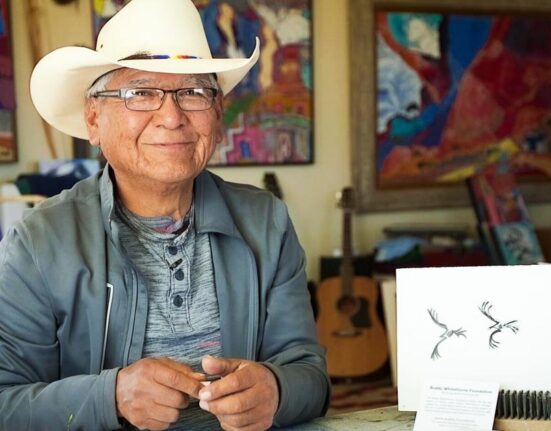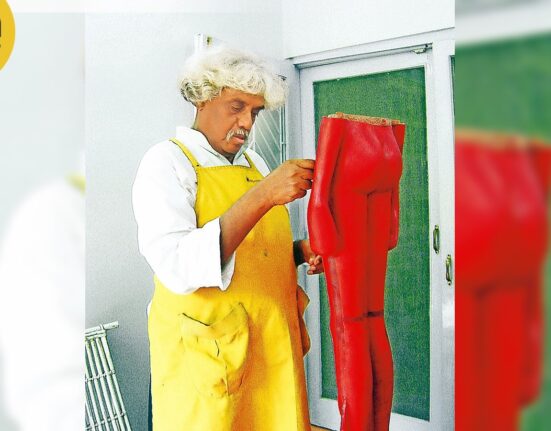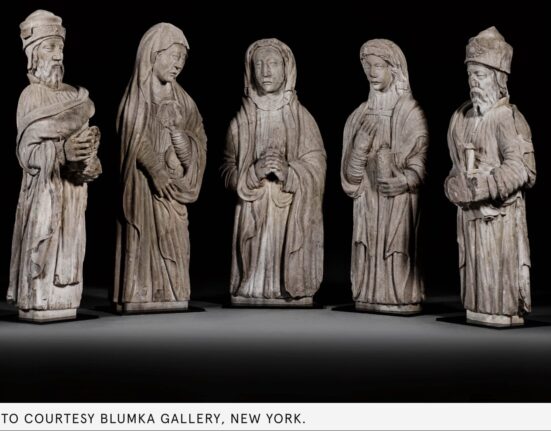by Kumar de Silva
With his 21-year tenure as Principal of Wesley College from 1962-1983, Arthur Shelton Wirasinha goes on record as being the second longest serving Principal of the College after Revd. Henry Highfield. A product of Richmond College, Galle, he touched the hearts and lives of tens of thousands of students who passed through the portals of Wesley College. This article which celebrates the man on his 100th birthday today, is extracted from the inaugural Shelton Wirasinha Oration delivered by well-known media personality Kumar de Silva, one of his grateful students.
Shelton Wirasinha was born on 24th November 1923 in a house at the foot of Richmond Hill in Galle. His father was Lionel Wirasinha, a draughtsman in the government service and his mother was Letitia, a teacher.
The Wirasinhas kept a simple home with a large garden full of wild flowers, which played home to a large variety of birds. They were proud of their two boys – Arthur Shelton and his older brother Victor Lloyd, who went on to become a brilliant Civil Servant.
The four-year old Arthur Shelton began scrawling his ABCs and 1,2,3s at Richmond College under whose portals he was later to pass as Prefect, Senior Prefect, Teacher, Headmaster, Vice Principal and Principal. His meteoric rise at College was punctuated by successes in almost every field.
He was the indefatigable chorister, debater, dramatist, scout, athlete, musician, cricketer and scholar. A keen sportsman, he excelled in cricket, track and field events, basketball and tennis. He was also a very eloquent speaker.
His easy stride in the academic sphere was crowned when he was awarded the College’s much-coveted Darrel Medal for the Best Student.
His school career was tempered by the inspiring influence of Principals like the Rev. Alex Sneath, Rev. John Dalby and, my own paternal uncle, E. R. de Silva.
Offering English, Latin and History, he passed with an Upper Second for his Bachelor’s Degree and did two brief teaching spells at St. Anthony’s School, Rakwana and St Peter’s College, Colombo. 1947 saw Richmond College proudly welcome one her illustrious products as Vice Principal.
Five years later 1952, he was awarded a scholarship and left for Birmingham, UK where he read his MA in Education. Returning to Galle, he assumed duties as Principal of Richmond. This was his crowning glory. Then came 1961 and it was time for him to leave Richmond and take over the reins at Wesley.
Wesley College 1961-1983
It was mid-December 1961. The unmistakable Christmas chill was in the air. The wind howled through the cypress trees at Karlsruhe, geographically the highest point in Colombo as the Wirasinhas drove up the drive to the 101-year-old Karlsruhe House (once owned by Charles Ambrose Lorensz) which solemnly awaited its new occupants – Shelton, Manel and the three-year-old Dushy.
He was to preside over the destiny of Wesley and charter its course for 21 years. It earned him the title – Bard of the Wesley Manor – which I think suited him perfectly. He was with no doubt THE quintessential Bard of the Wesley Manor.
Early recollections
My early recollections go back to 1968, to Grade 01. There was this big burly man striding in military precision through the corridors which boomed with his stentorian tone. We were petrified of him and fled when we saw him.
ASW – the Teacher of English
My fear of him gradually subsided and I went into the higher classes. I was the only one in class offering English and French and German. I was first in class. I was last in class. If I cut classes or cut school, I got caught. I was the proverbial arecanut caught in the nutcracker.
Shelton Wirasinha’s forte was literature – drama, prose and poetry. My English lessons with him were the two periods just before the interval. His office was what is now, the current Principal’s Secretary’s office. There was no air-conditioning and so the doors were wide open. He always sat by the door and backed the College Office. I always sat with my chair half in the doorway and backed the office. No one saw our faces.
Shelton Wirasinha got passionately and deeply involved in the literature and poetry he taught. He had this fascinating capacity of bringing characters to life. He almost made them tangible, living, breathing human beings.
And so with Leonard Woolf we went through the deep and evil forest that surrounded the village of Beddegama …. with Wordsworth we wandered lonely as a cloud that floats on high o’er vales and hills … with Walter de la Mare we held our breath and observed – Slowly, silently, now the moon, Walks the night in her silver shoon; This way, and that, she peers, and sees, Silver fruit upon silver trees; … with John Keats we saw Autumn sitting careless on a granary floor, her hair soft lifted by the winnowing wind“…and with Shakespeare we helplessly we saw the Othello the Moor “put out the light put out the light“.
I remember he used to get into an absolute rage when portraying the moments as Iago poisons Othello’s mind … his voice rising in a crescendo, almost screaming, he would ‘become’ the enraged Othello.There I was enjoying the performance while the entire office went dead silent, staff stopped work and stared, open mouthed – they thought I was getting blasted to smithereens by the Principal. No, I wasn’t. Such were the multi-dimensional English lessons with Shelton Wirasinha. To him it was sharing of knowledge and not teaching it.
Interval
He was so passionately and deeply engrossed that he never heard the interval bell ring. I heard boys playing and shouting outside but he never did. How on earth could I say “Sir, Now Stop !!!” Even as an AL student I dared not.
Mercifully he did hear the bell at the end of the interval. I used to say, “Sir the interval is over and I’m not allowed to go to the tuck shop. The prefects will pull me up”.
Back came the reply, “Follow me Putha. I am the Principal“. And so I trotted behind him to the tuck shop.The prefects, obnoxious as they were, took great delight in pulling me up. I had the perfect cover. Cockily I would say – “Ask the Principal“. They dared not.
Assemblies and Pronunciation
Shelton Wirasinha was particular about his pronunciation which went beyond being meticulous. His articulation was perfect and he made the correct stress on the correct vowel, the correct syllable. Pronouncing the ‘V’ and ‘W’ were important to him. Listening to him talk was like listening to a surgeon’s scalpel sliding through a slab of frozen butter … you the reader can figure that out!
With him on stage at Assembly, we knew we were in for a treat. He was a grand raconteur, a story teller with a storehouse of stories and tales. He fired our imagination and there were lessons to be learnt
Spelling W-i-r-a-s-i-n-h-a
Shelton Wirasinha was neither fussy nor demanding but there was one thing that irked him a lot and that was when his name was mis-spelt. He would actually get very, very cross. It had to be spelt as W-I-R-A-S-I-N-H-A.
Golden Era of Culture and the Arts
Shelton Wirasinha’s era at Wesley was also the Golden Era of Culture and the Arts. During his time, on the staff were great names such as Jayantha Premachandra the international award-winning artist, Basil Mihiripenne the celebrated oriental dancer and sitarist, Felix Premawardena the dramatist and actor, and, Haig Karunaratne the dramatist and choir master par excellence. They were the Stars of Wesley.
Prize Day – Founder’s Day
He was very fastidious and paid great attention to detail. Everything had to be perfect. He chose the music with great care. There were two hymns which were close to his heart. One was “I vow to Thee my Country” which he played on every Founder’s Day morning as the procession of flags entered the Hall to begin the service. The other was “Guide me O Thou Great Jehovah“
Putha
The dusky damsel who inhabited Karlsruhe House, Dushy Wirasinha, his daughter, must have been a lucky young lady. She had hundreds of brothers and they were all Wesleyites. He called us ‘Putha’. He knew a large, large number of boys by their first names. It was an individual bond he created with all of us. His simplicity and modesty earned for him the love and respect of his students.
Gladys Manel Dunuwille
To write of Shelton Wirasinha is also to write of his wife Gladys Manel Dunwille, one of the five extremely talented Dunuwille girls.
If Shelton Wirasinha was the Bard of the Wesley Manor, then Manel was the Empress of Karlsruhe. The bungalow and the lawn were her realm, and there she reigned supreme in all her glory. She made it her personal vocation to maintain Karlsruhe House like a jewel. Karlsruhe, this heritage building, meaning Charles Rest in German, is the Jewel in Wesley’s Crown.
An interesting feature in the house is the historic satinwood screen with a background in the traditional acanthus pattern separating the drawing room from the dining room. The letter ‘L’ for Lorenz appears in one of the panels, while the other panel bears the letter ‘K’ for Karlsruhe.
Generations of boys knew those polished verandah floors where one could literally see one’s face. We weren’t allowed to walk on those polished floors. Those who had to, had also to remove their shoes. Even Shelton Wirasinha!
The day before Prize Day, it was a treat to see the trophies and cups and shields all polished and gleaming on the verandah.
The Bungalow was a veritable cultural oasis. Shelton, Manel and Dushy their daughter shared in their love for music. Mrs. Wirasinha was a double gold medallist of both the Royal and Trinity Schools of Music London. Dushy also played the piano. And so that old Marshall and Rose piano made beautiful music, it sang. It sang happily, it sang dolefully, it sang in different moods and genres.
And the music of the masters – Beethoven, Mozart, Chopin, Rachmaninov, Debussy, Bach, Haydn – literally poured out of the Bungalow, over the verandah, across the drive and into Wesley College. To those of us who appreciated it – it was bliss.
Post Wesley College
Shelton Wirasinha served Wesley from 1961 to 1983 and then it was time to go. They had to leave the majestic Karlsruhe House. They moved to Nawala, to a much smaller house than Karslruhe but they were comfortable there. We were then delighted to see him on television as Quiz Master of the Dulux Do You Know Competitions.
I visited him often during that period. I was then an undergraduate at the University of Kelaniya, reading English and French for a Hons. Degree. Just like it was at Wesley, his library was still open to me.
As I lay dying
The very last time I visited him was one week before his death in November 1985. He had had hepatitis and was on slow road to recovery. I found him reading a book called ‘As I Lay Dying’, a 1930 novel by the American author William Faulkner. Whether this was a premonition or not, I don’t know.
He told me, “Putha get this book from the American Centre and read it. They have extra copies“. I borrowed the book the very next morning, hoping to read it that night. That evening, 13th November 1985, I learnt that he was dead, eleven days before his 62nd birthday. I did not open that book. Even to this day I have not read it.

